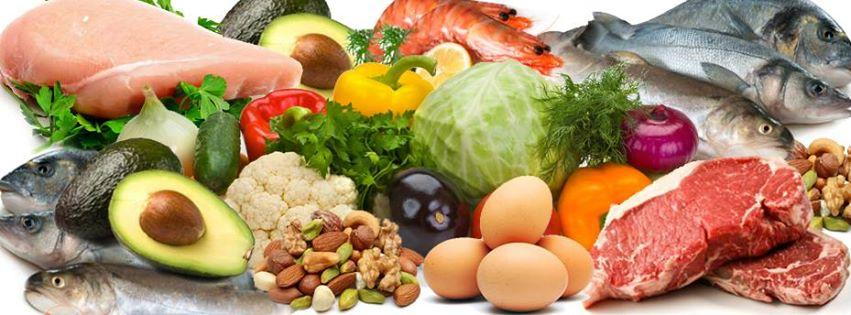- posted: Jan. 17, 2017
This week, we want to discuss the sugar-cancer connection. The link between sugar and cancer has been understood for a while, but we wanted to break this down and discuss some of the less widely known facts about the benefits of following a low-carbohydrate diet. Also, as always, check out this week's recipes and current office happenings!
Sugar Feeds Cancer Cells
Cancer cells uptake sugar at 10-12 times the rate of healthy cells, and thrive in an acidic environment. Sugar is highly acidic. With a pH of about 6.4, it is 10 times more acidic than the ideal alkaline pH of blood at 7.4. By creating an acetic environment with a diet high in carbohydrates and sugar, cancer cells can proliferate quickly and at will.
Sugar suppresses a key immune response known as phagocytosis, which is a mechanism used to remove pathogens and debris from our immune cells. Not only the amount of sugar, but also the frequency of ingesting sugar is relevant to immune function. A healthy immune system will usually spot and kill mutated cells before they can replicate too many times, creating a tumor. The over-consumption of sugar, or regular consumption of sugar suppresses this immune response.
In most people, when sugar in any form is consumed, the pancreas releases insulin. Breast tissue, for example, contains insulin receptors, and insulin is a powerful stimulant of cell growth. One group of Australian researchers concluded that high levels of insulin and insulin-like growth factor may actually be causative of cancers of the breast, prostate, endometrium and pancreas. A broad study conducted in 21 countries in Europe, North America and Asia concluded that sugar intake is a strong risk factor contributing to higher breast cancer rates, particularly in older women. A four-year study at the National Institute of Public Health and Environmental Protection in the Netherlands compared 111 biliary tract cancer patients with 480 healthy controls. Sugar intake was associated with more than double the cancer risk. Click the link below to see this study:
https://www.ncbi.nlm.nih.gov/pubmed/8610083
Combat Cancer Cell Growth with Diet
Cancer cells need glucose to thrive. Carbohydrates are broken down into glucose molecules as you digest. By lowering the glucose level in your blood though carbohydrate restriction, the cancer cells are starved of their fuel and will die off.
A diet very low in carbohydrate intake is being studied as a possible way to manage and treat brain tumors and advanced breast and prostate cancers. The research is ongoing, but there are many studies that are finding promising results. We have linked a few of them below if you would like to further your research.
http://bmccancer.biomedcentral.com/articles/10.1186/1471-2407-8-122
http://nutritionandmetabolism.biomedcentral.com/articles/10.1186/1743-7075-2-30#Declarations
https://www.researchgate.net/profile/Linda_Nebeling/publication/15407903_Effects_of_a_ketogenic_diet_on_tumor_metabolism_and_nutritional_status_in_pediatric_oncology_patients_Two_case_reports/links/0fcfd50c8978caedb1000000.pdf
What is a Ketogenic Diet?
As mentioned, this diet limits carbohydrate intake. When carbohydrate-rich foods are digested, they are broken down into glucose in the body. Higher carbohydrate intake results in higher blood sugar (glucose). If we reduce carbohydrate intake and instead eat more fat and protein, it results in a switch in metabolic pathways from using sugar as a primary fuel to burning fat instead.
As more fat is burned, some of it is converted into ketone bodies. As blood glucose and insulin levels drop and ketone levels rise, the heart, muscle and brain switch to using more fat and ketones to fuel themselves.
Dr. P's protocol is innately rich in protein, fat, and non-starchy vegetables and is low in carbohydrates as refined foods and grains are excluded. Eating this way also fights chronic inflammation in the gut as well as bacterial, fungal, and parasitic infections, all of which thrive on glucose as fuel.
What are Ketones?
Ketones are substances that are made when the body breaks down fat for energy or fuel. Stored fat is broken down and ketones are made if your diet does not contain sufficient carbohydrates to supply the body with glucose for energy. Our mitochondria can use either glucose or ketones to power each cell in the body. It is important to note that ketones provide a cleaner, more efficient energy source than glucose.
One widely made argument is that the brain needs glucose to function. This is not true. Ketones serve as an excellent energy source to maintain normal brain cell metabolism. As stated above, ketones are a more efficient fuel than glucose, providing more energy per unit oxygen used. A ketogenic diet also increases the number of mitochondria, so called “energy factories” in brain cells.
What is the Take-Away?
Many forms of cancer cells require glucose to proliferate and thrive. By depriving them of their prefered energy source, we can stall their growth. As a bonus, a diet that is rich in protein and fat and low in carbohydrates is excellent for reducing inflammation, bacterial, parasitic, and fungal infections.
Our bodies cannot create glucose. We have about 24 hour supply stored in our muscles and liver. And once glucose is no longer available, we begin to burn stored fat. The bottom line here is that because a ketogenic diet eliminates glucose, it causes the body to burn stored fat. A diet low in carbohydrate intake is a bit controversial, but the health benefits cannot be denied.
Locations
6940 South Holly Circle Suite 201
Centennial, CO 80112, US
Office Hours
Our Regular Schedule
8am - 1pm
3pm - 5pm
8am – 1pm
3pm – 7pm
Closed
Closed
8am – 1pm
3pm – 7pm
8am – 2pm
Closed
Closed
Closed
Closed
Closed

